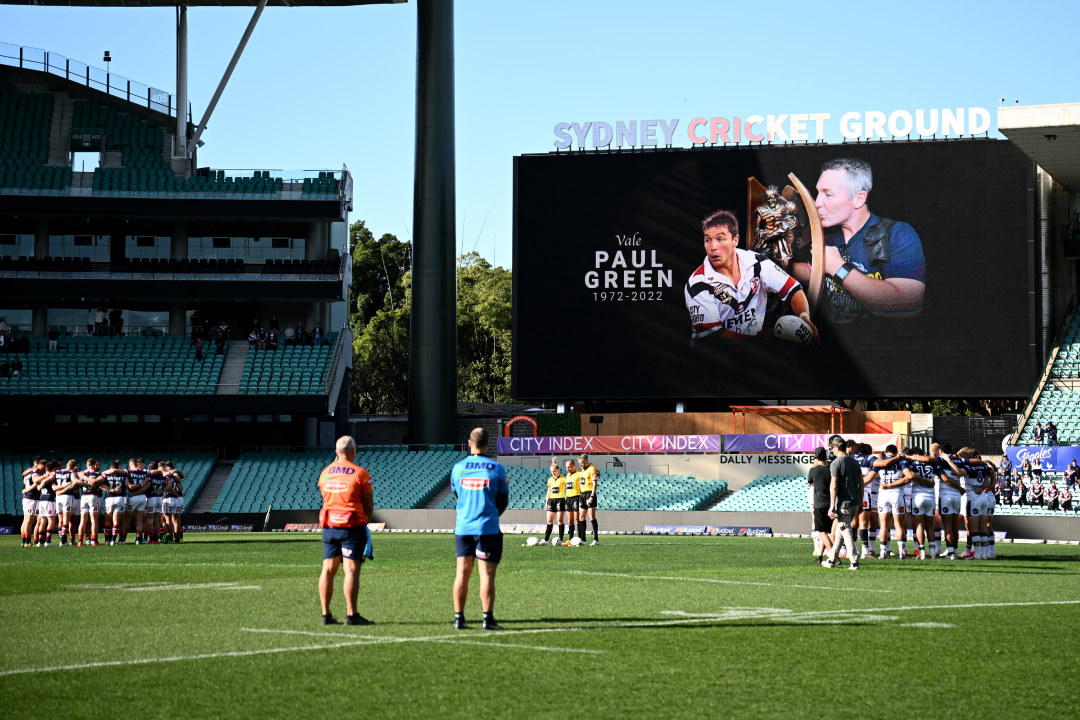
The last two weeks in Australia have seen the death of a number of celebrities and icons, all from natural causes until the shocking case of the suicide of the much-loved rugby league player and coach, Paul Green, at the age of 49.
The question so many people ask is why? Paul was a highly decorated rugby league player and also an NRL Premiership-winning coach, about to take up a high-profile position at the new rugby league team, the Dolphins.
Despite the enormous publicity and conversation around mental health issues over the past few decades, there still appears to be many misconceptions as to the underlying causes, and also still a stigma around mental health. Many people still have this bizarre notion that people with mental health issues should be stronger and able to pull themselves out of their current situation.
Although there are a number of factors that contribute to suicide, the major underlying cause is that of endogenous depression. Endogenous depression is a biochemical disorder of the brain, not a psychological disease.
A person with endogenous depression can pull themselves out of this condition as much as a diabetic can improve their blood sugar levels by being more positive.
It has been hypothesised for many years that the underlying abnormality in depression is a reduction in brain serotonin levels, although there have been some recent studies suggesting that low serotonin is not linked to depression, this argument is not particularly relevant to this discussion.
The common symptoms of mild endogenous depression are lack of interest in normal activities, fatigue throughout the day and, typically, waking at 2 to 3 in the morning finding it difficult to go back to sleep for often over an hour. These symptoms may be transitory but may also continue for months. Endogenous depression is typically treated with the vast array of antidepressants available on prescription.
There are a number of studies showing some benefits from regular exercise, social engagement and natural therapies such as St John’s Wort and Sam-e, to name a few alternative approaches.
Apart from the above symptoms, the more serious forms of endogenous depression also involve a sense of hopelessness about life and suicidal thoughts, attempted suicide and tragically and unfortunately far too common, successful suicide.
It is estimated that 10% of adults will experience some form of endogenous depression on a yearly basis, much of which is unrecognised and untreated.
The precipitants of an episode of endogenous depression are typically significant life traumas such as bereavement, relationship breakdowns and also rearrangement or relocation of life circumstances, to name the top three.
Long-standing mental health issues are often associated with endogenous depression, frequently associated with significant childhood abuse either psychological, physical or sexual. There is also a significant rate of depression in the gay and transgender communities especially when they feel unsupported by their families and friends.
It is not well recognised that there are a number of medical conditions that are associated with endogenous depression. To give two common examples, 40% of people following coronary artery bypass grafting will experience a degree of endogenous depression for up to six months after the procedure. Secondly, there are a number of pharmaceutical drugs that have endogenous depression as a relatively common side effect such as statins to lower cholesterol, beta blockers commonly used to treat angina and hypertension but also a variety of other drugs to treat many medical conditions.
Any form of substance abuse including legal drugs such as alcohol is commonly associated with endogenous depression. Finally, the increasingly recognised condition of chronic traumatic encephalopathy, typically seen in sportspeople but also after other causes of serious head injuries, may also lead to endogenous depression.
Apart from effective antidepressants, psychotherapy is also useful. There has also been increasing work in the area of trans-cranial brain stimulation and a recent study also looked at implantable electrodes for people with severe refractory depression. Electroconvulsive therapy, highlighted in the movie 'One flew over the Cuckoo's Nest', is still another useful therapy used for refractory depression.
The key point here is that if you have any symptoms that suggest you may have endogenous depression it is vitally important you speak with your doctor, as the first point of contact, but also seek the help of a friend and relative to give you support. Equally, if you can see the signs of this condition in a friend or relative, find a way to discuss this with them and encourage them to seek help from an appropriate expert in the area.
We will not always be able to save everyone but hopefully, when tragedies like this occur, the only positive that arises is the fact that we gain more understanding of the underlying issues and intervene early. As with all aspects of medicine, the earlier we detect a condition, the more effective the treatment.
No one should ever suffer in silence and suicide is never the solution.
Help is available. Speak with someone today
Lifeline Australia
Hours: Available 24 hours.
13 11 14